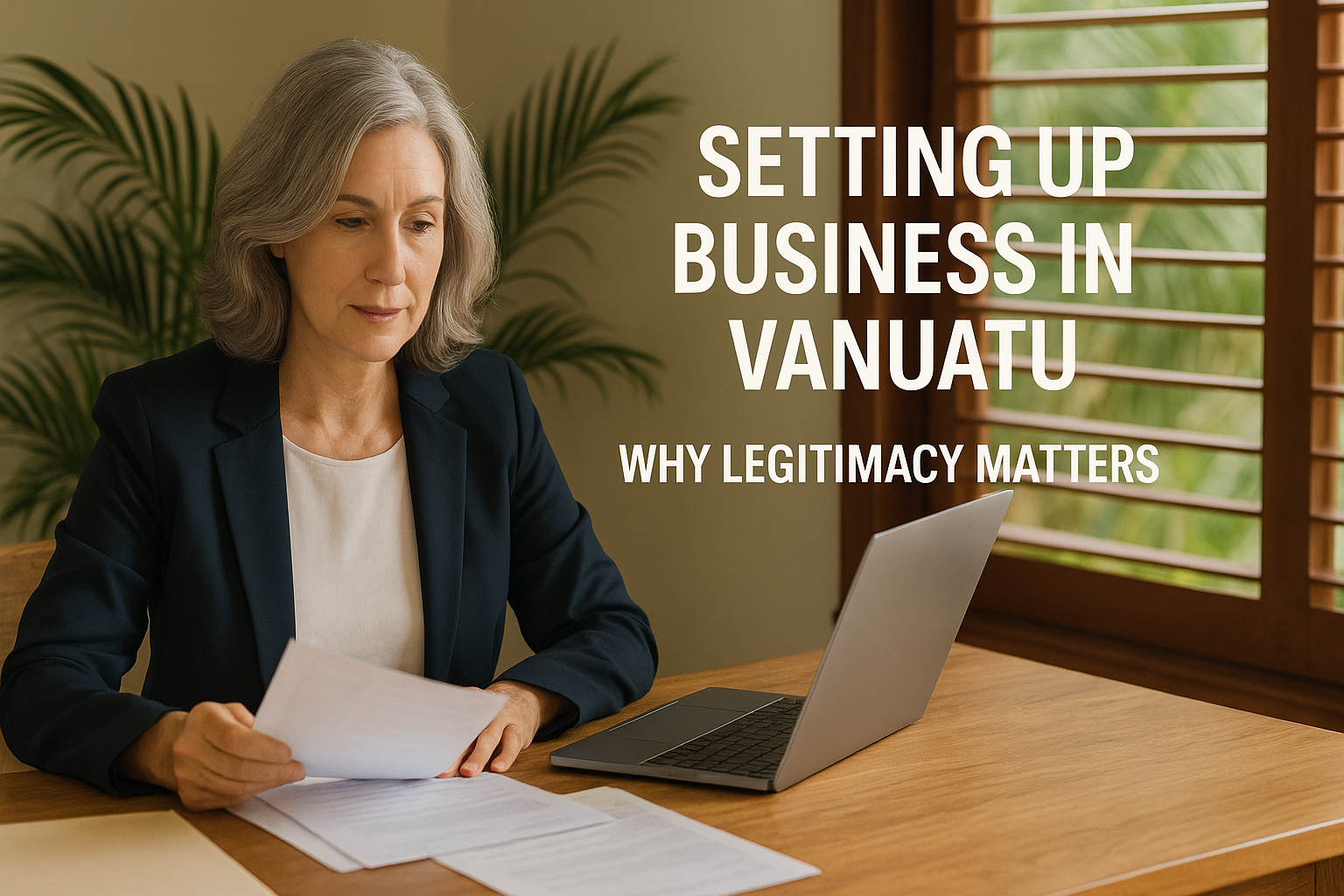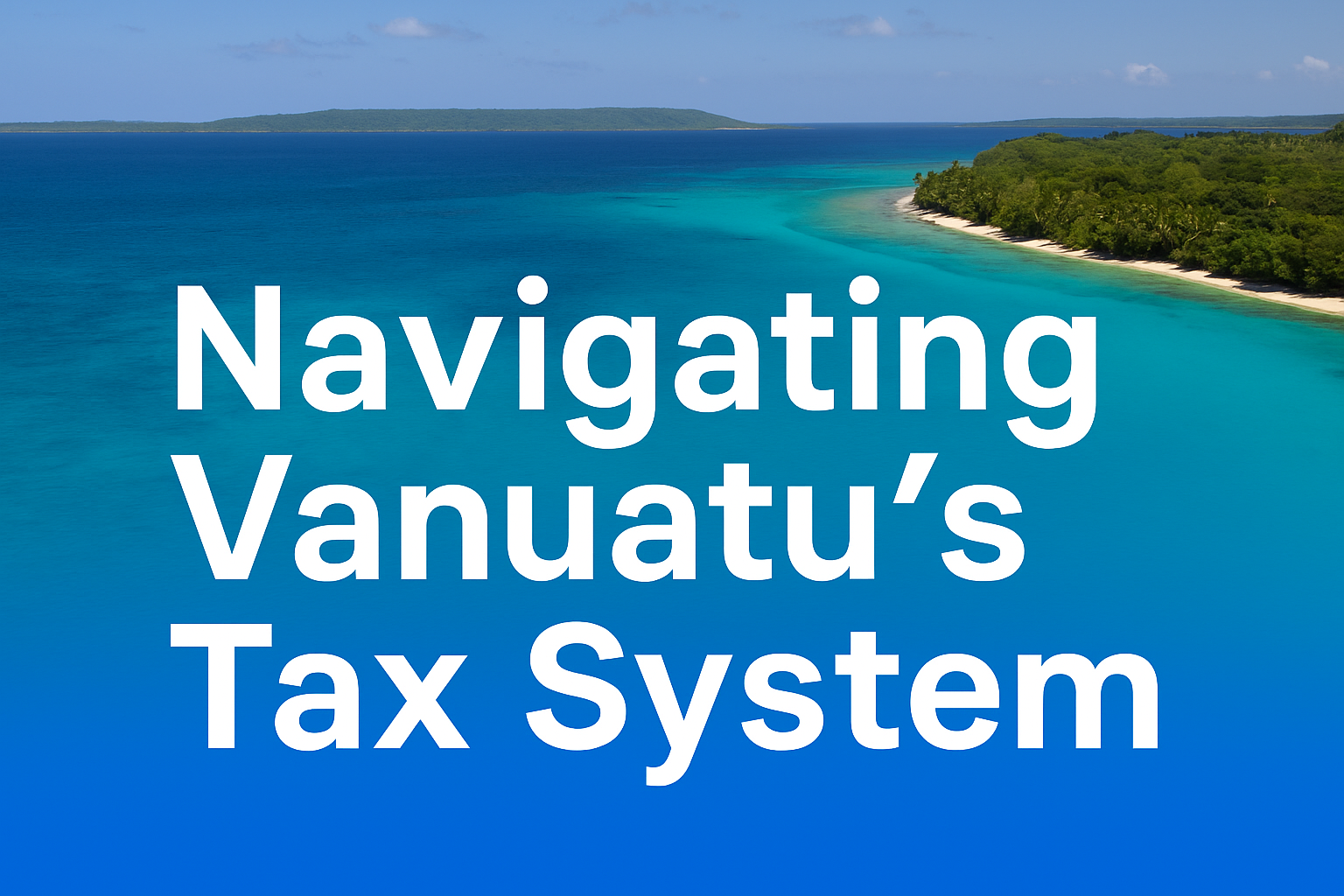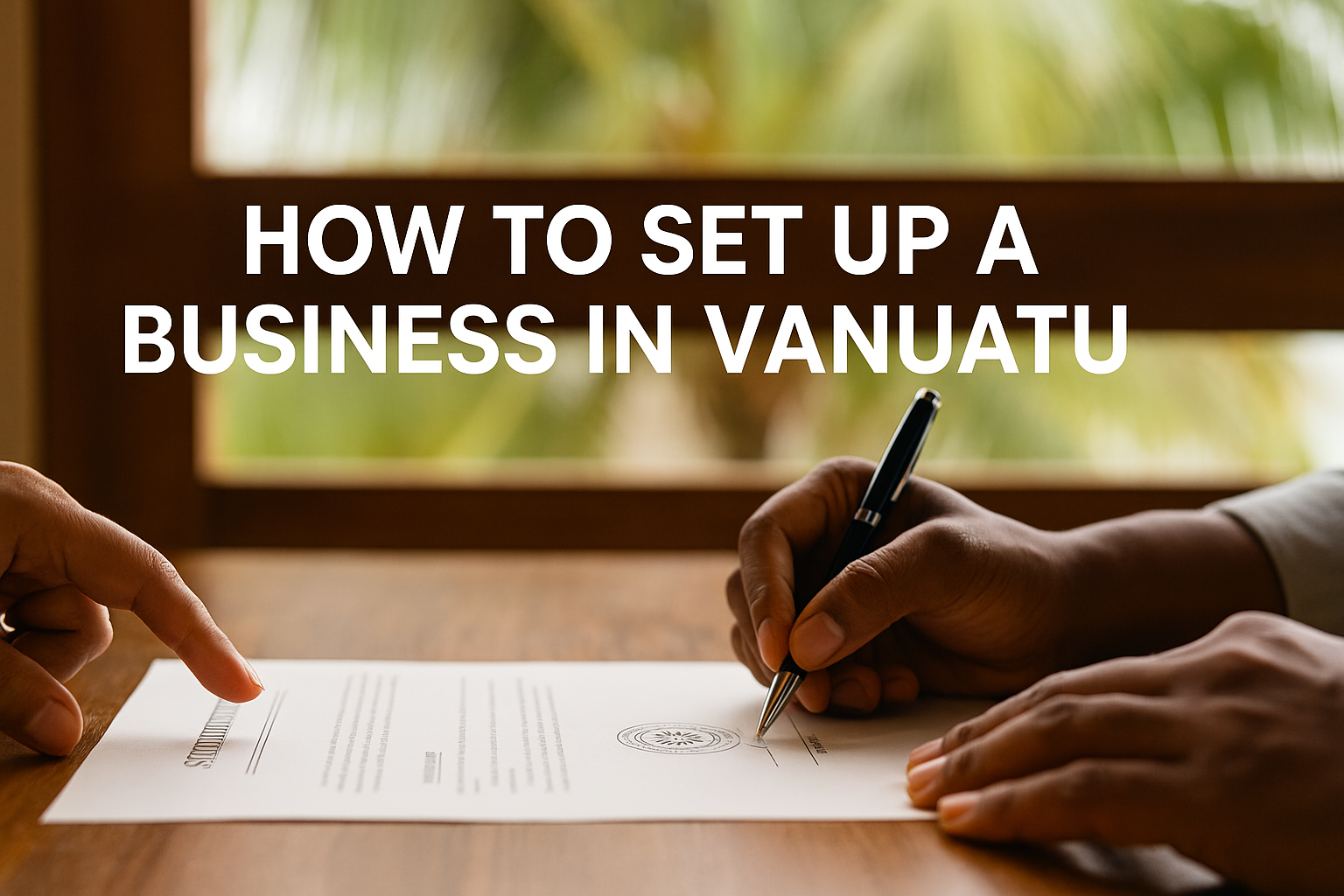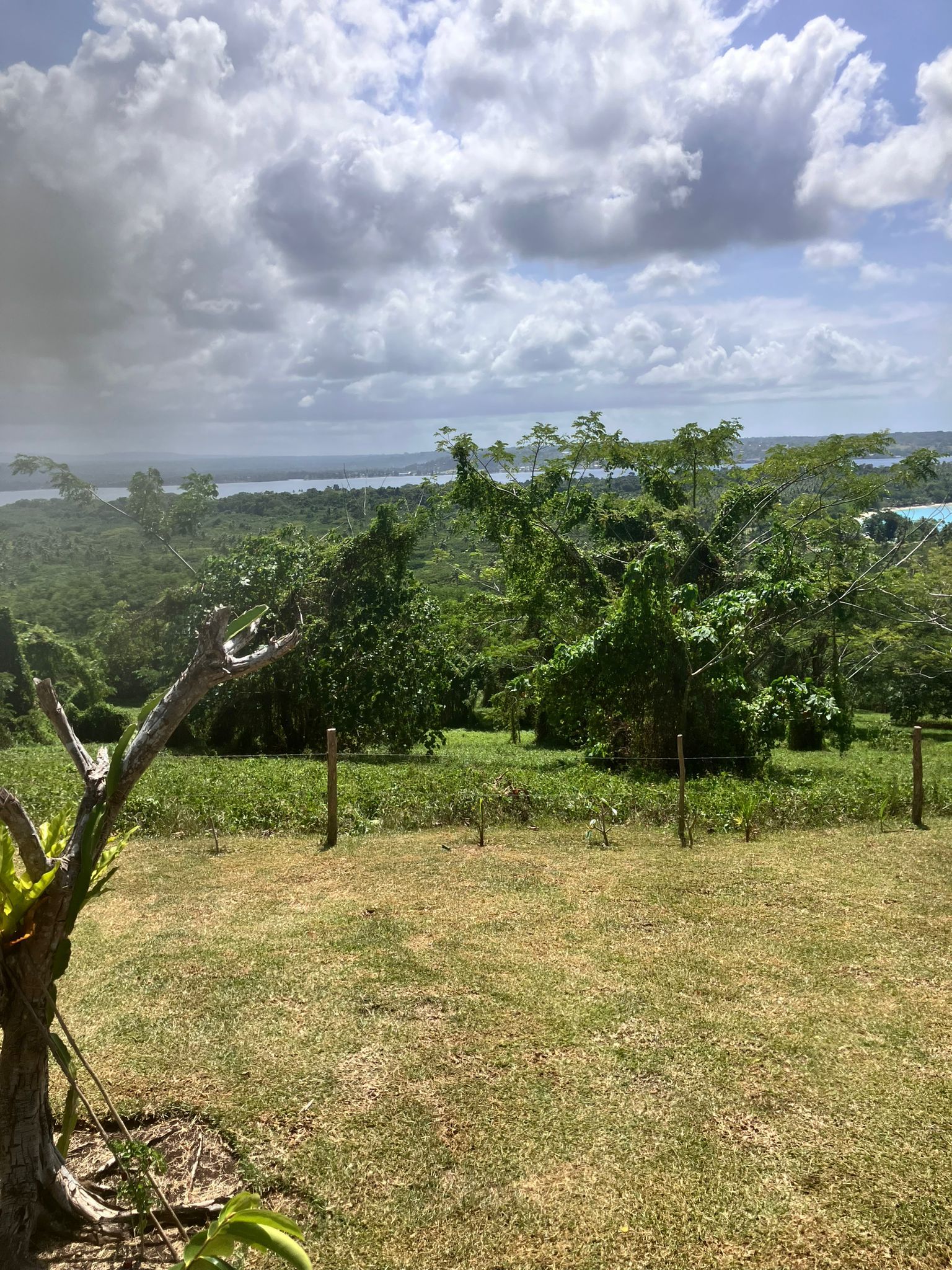
7 min Read
Vanuatu has long been seen as one of the Pacific’s most attractive business hubs.
With no corporate income tax, no capital gains tax, and relatively straightforward company registration, many entrepreneurs search “how to set up a business in Vanuatu” or “Vanuatu tax free business.”
But here’s the truth: while it’s simple to establish a company on paper, your business must be legitimate. Tax departments in your home country will not recognise a shell entity set up just to avoid obligations. You need to prove real operations in Vanuatu, real local benefits, and real interests.
This investigative case study outlines what makes a Vanuatu business legitimate, what evidence matters, and why “tax free” doesn’t mean “effort free.”
The Appeal: Why People Look to Vanuatu
- Tax Benefits: No corporate tax, capital gains, or withholding tax.
- Speed: With the right documents, a business can be registered in as little as two weeks.
- Remote Setup: You don’t have to physically be in Vanuatu to start.
- Strategic Location: Growing role as a Pacific hub, attracting regional investment.
These benefits are real, but authorities abroad are alert. Setting up for appearances only is a fast path to audits and penalties.
What Tax Departments Look For
To claim that you run a business in Vanuatu, you must demonstrate substance. Three key areas matter most:
1. A Legitimate Business Structure
- Registered with the Vanuatu Financial Services Commission (VFSC)
- Properly licensed and compliant with business regulations
- Conducting actual commercial activity (not just a shell company)
2. Contribution to Vanuatu
- Employing locals, engaging service providers, or creating partnerships
- Paying local fees, lease costs, or other government dues
- Demonstrating that the business adds value to the Vanuatu economy
3. Local Interests or Presence
- Having a registered office or agent
- Holding a residence, spending significant time in Vanuatu, or establishing operational ties
- Not attempting to hold dual benefits (i.e. living in Australia while claiming Vanuatu business residency)
Put simply: you can’t enjoy the best of both worlds. Either your business genuinely operates in Vanuatu—or it doesn’t.

Case Study The Right Way vs. The Wrong Way
The Wrong Way
James, an Australian entrepreneur, rushed to register a company in Vanuatu after reading about “tax free structures.” He filed documents, paid the fee, and received a Certificate of Incorporation. But he never opened an office, never hired locally, and ran everything from Sydney. When he claimed foreign tax exemptions, the Australian Tax Office ruled his company was not resident in Vanuatu because all decisions and operations took place in Australia.
The Right Way
By contrast, Maria registered through a Vanuatu agent, opened a bank account locally, hired a part-time assistant in Port Vila, and kept records of her transactions with local providers. When questioned, she showed contracts, invoices, and employment records. Authorities accepted her company as Vanuatu-based because it had substance and ties to the country.
Why This Matters for Investors
Authorities worldwide are tightening scrutiny. They expect businesses in low-tax jurisdictions to prove:
- Management & Control – Decisions are genuinely made in Vanuatu.
- Physical Presence – Employees, offices, or operations exist locally.
- Economic Purpose – The business serves real customers, not just a tax strategy.
For entrepreneurs searching “is Vanuatu business tax free”, the answer is yes—but only if you’re legitimate.
Setting Up – The Process
- Company Registration – Choose entity type, submit documents to VFSC, receive Certificate of Incorporation.
- Licensing & TIN – Register business name, obtain license, apply for a Tax Identification Number.
- Banking – Open a Vanuatu business account with KYC compliance.
- Operations – Hire staff, contract providers, lease space, or otherwise operate locally.
Each step is simple but proves critical in demonstrating legitimacy.
Quotes from Experts
“Setting up in Vanuatu is fast, but speed doesn’t remove responsibility. A company without substance won’t survive scrutiny.” – "Local corporate agent"
“Foreign investors should see Vanuatu as more than a tax strategy. Real businesses that employ and contribute are welcomed.” "Vanuatu legal consultant"
The Three Tests of Legitimacy
If you want your business recognised as Vanuatu-based, ask:
- Is it a legitimate business? Does it operate, trade, and comply with regulations?
- Does it benefit Vanuatu? Does it employ locals or add value to the economy?
- Do you hold interests in Vanuatu? Office, residence, or operational ties?
If you cannot answer “yes” to these, your business risks being treated as tax evasion.
Easy But Not a Shortcut
Yes, the process is straightforward. With the right documents, your company can be live in two weeks. You can do it remotely. The tax advantages are real. But you must be prepared to show that your business is for Vanuatu, in Vanuatu, and connected to Vanuatu.
The alternative setting up a paper entity and running everything from Australia or Europe will not hold up to scrutiny.
FAQs on Tax Free Setup in Vanuatu
Q: How long does it take to set up a business in Vanuatu?
Q: How long does it take to set up a business in Vanuatu?
With correct documents, registration can be completed in around two weeks.
Q: Do I need to live in Vanuatu to run a company there?
Q: Do I need to live in Vanuatu to run a company there?
No, you can register remotely, but you must show local ties—like employees, office, or service contracts.
Q: What is the role of Vanuatu Corporate Services in money recovery?
Q: Can I use a Vanuatu company just to reduce taxes in Australia?
No. To be recognised, the company must operate in Vanuatu. Running everything from Australia will be treated as tax avoidance.
Q: Can I just walk into a Vanuatu bank and demand my money back?
Q: What makes a Vanuatu company legitimate?
It must be properly registered, contribute locally, and demonstrate genuine operations in Vanuatu.
Q: What if the bank where I sent my money has closed?
Q: Is Vanuatu really tax free?
Yes, but only for businesses that are legitimate and based in Vanuatu. Authorities expect evidence of real substance.
Conclusion
Vanuatu offers an incredible opportunity: tax-free operations, low costs, and fast setup. But opportunity is not the same as loophole. To truly benefit, your business must be legitimate, contribute locally, and show real ties.




















